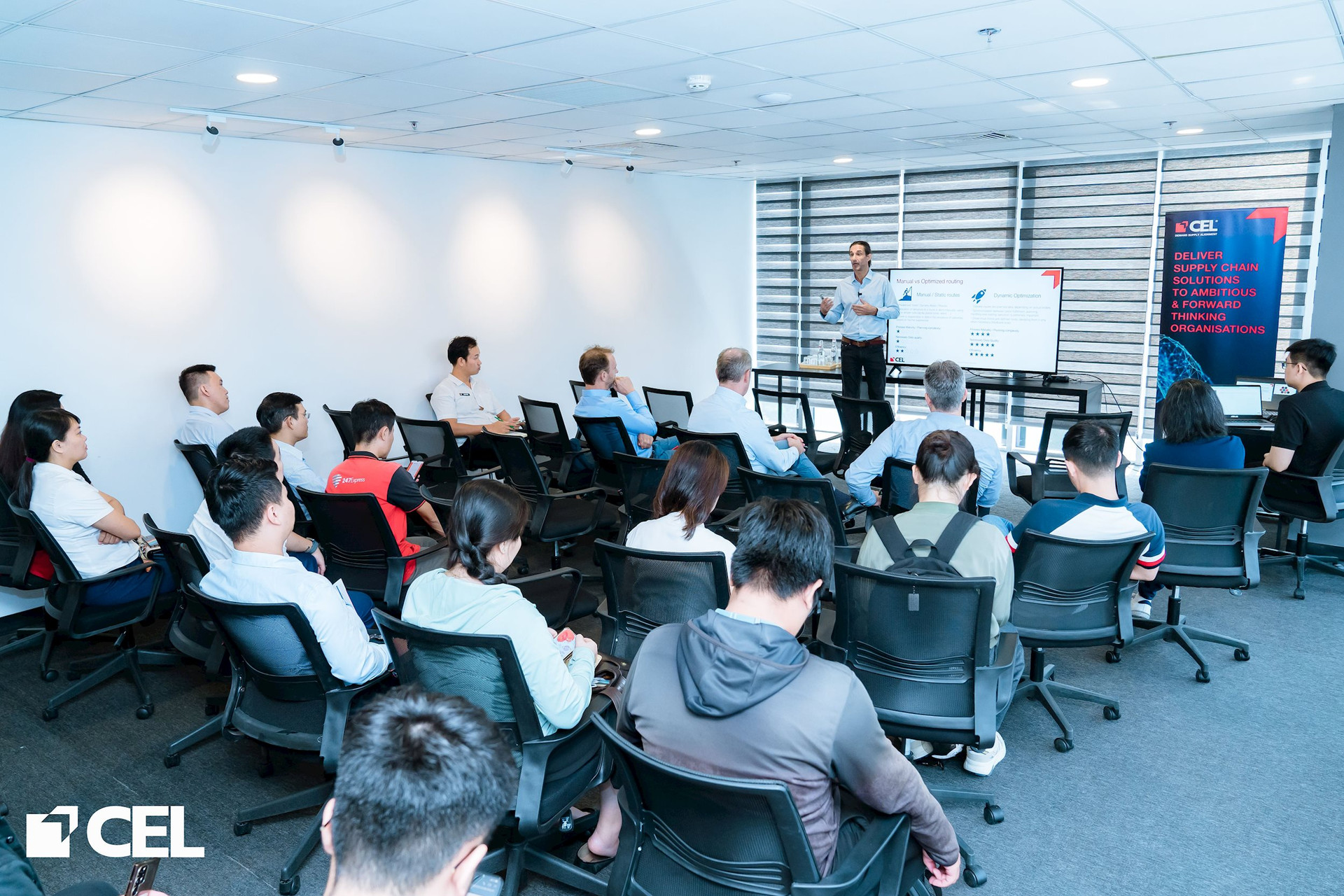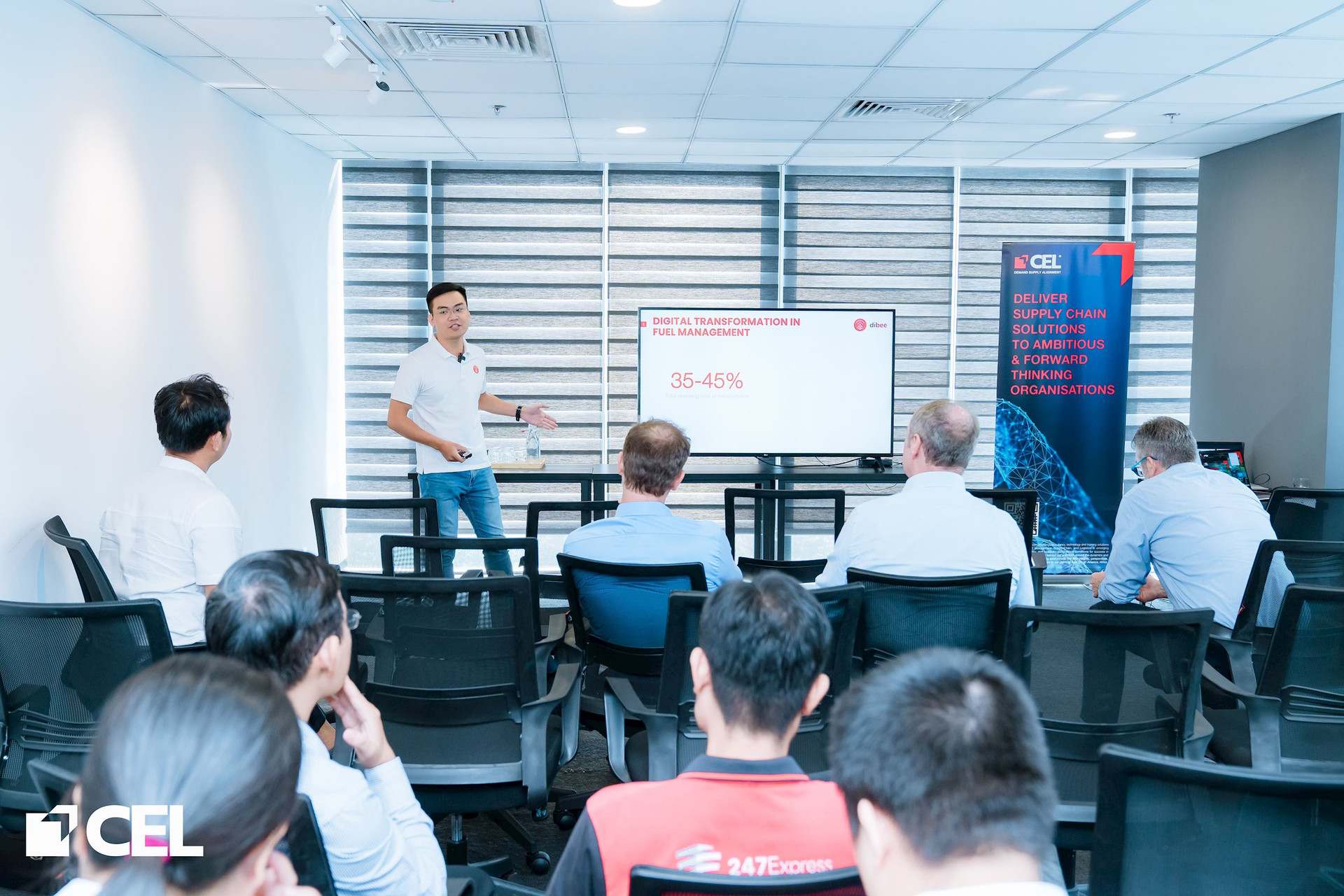.jpg)
.jpg)
.jpg)
.jpg)
The logistics industry is essential to the interconnected supply chains that are central to the global economy. Critical to this are the maritime and rail sectors, which facilitate the movement of energy resources like oil and natural gas, as well as commodities such as steel, garments, fertilizers, and containerized consumer goods. The aviation sector is crucial for transporting time-sensitive items and high-value consumer products, while road transport serves as the most widespread method of moving freight to consumption points worldwide.
In 2023, Vietnam experienced a decline in its Logistics Performance Index (LPI) ranking, dropping four places to 43rd from 39th in 2018, as reported by CEL Consulting. Despite this, the LPI score saw an increase, rising to 3.3 points from 3.27 in 2018. This improvement is attributed to the enhanced performance of Vietnam Customs and the overall infrastructure quality.
.jpg)
.jpg)
The impact of the Covid-19 pandemic on the logistics industry is evident through disruptions in supply chains and transportation. Truck transport activities are pivotal in Vietnam's industry structure, responsible for 77% of transported goods, totaling over 1.5 billion tons. However, this sector faces significant challenges, including high logistics costs amounting to 21% of GDP.
.jpg)
.jpg)
According to the GLEC Framework version 3, the logistics and transport sector's climate impact accounts for approximately 60% of global oil demand. The reduction in transport activity during the COVID-19 pandemic resulted in a significant temporary decrease in greenhouse gas (GHG) emissions as road and aviation transport demand plummeted. Until 2021, transport-related oil demand levels remained below pre-pandemic levels, leading to a 600 Mt CO2 emissions reduction compared to 2019 levels. However, transport demand and related GHG emissions have since rebounded and continue to grow.
Freight transportation and logistics activities currently contribute 8-10% of global GHG emissions. The International Transport Forum anticipates demand for freight transport will nearly triple by 2050, with most growth occurring in Asia, Africa, and Latin America. Without intervention, freight transport emissions are projected to more than double by 2050.
Consequently, it is imperative for governments worldwide to focus on reducing GHG emissions to meet the Climate Targets of the United Nations’ Paris Agreement. Enhancing freight transport efficiency and reducing transport-related emissions are crucial to achieving these goals. A unified global effort is necessary for progress. Companies should analyze their transport and logistics efficiency and take necessary steps to optimize their transport systems for further acceleration of changes.
At the 2021 United Nations Climate Change Conference (COP 26), Vietnam, along with 147 other countries, committed to achieving net emissions of "zero" by mid-century, relying on domestic resources and international support, particularly from developed countries in finance and technology transfer, including mechanisms under the Paris Agreement. Implementing these commitments will yield substantial and long-term benefits for Vietnam and provide an opportunity for the government to transition the economy towards low carbon development, driving comprehensive transformation in the transportation sector towards green and sustainable development with zero GHG emissions. Despite the commitments and efforts made to contribute to the national climate goal, the continued use of old and small trucks in Vietnam persists as a significant contributor to environmental concerns, including greenhouse gas emissions and traffic congestion.
To address these challenges, recommendations include modernizing fleets, enhancing driver qualifications through training programs, and improving infrastructure to facilitate diverse types of transport. The implementation of digital technologies, such as e-toll payment systems, fuel management solutions, and route optimization tools, is deemed crucial for enhancing operational and economic efficiency.
Considering Vietnam's emerging role in the transport and logistics sector and the commitment to achieving net-zero emissions by 2050, several key strategies can support the government's goal:
.jpg)
.jpg)
.jpg)
.jpg)
In the face of these challenges, Vietnam's transport and logistics market is projected to reach USD 45.19 billion by 2023 and is expected to grow at a compound annual growth rate of 6.34%, reaching USD 65.34 billion by 2029. Specifically, Vietnam's truck transport industry witnessed significant growth in early 2023, with a 16% increase in freight volume and nearly 22% growth in revenue compared to the previous year. Despite this growth, there are increased costs, attributed in part to fluctuations in fuel prices.
In addition to the rising fuel expenses, a recent survey conducted by CEL with 143 truck transport businesses in Vietnam highlighted critical issues in business and transport operations, including inefficient route optimization, high vehicle maintenance costs, driver shortage, and salary increases. Understanding the impact of these factors on each business is crucial as it emphasizes the importance of effective logistics management.
To prepare for sustainable development, the transport industry aims to reduce reliance on road transport by diversifying transportation modes, including waterways, air, and sea. Although the transportation industry faces complex prospects in 2024, signs of improvement in Vietnam's logistics toward the end of 2023 indicate a potential stabilization of cost increase soon.
During the Fleet Futures conference, industry experts and business representatives engaged in in-depth discussions about strategies to reduce transportation costs and survive new challenges. The focus was on minimizing fleet operating costs through the application of technology.
Mr. Andrea Tretti, Consulting Director at CEL Consulting, explored the topic of "Vehicle route optimization," delivering pertinent definitions and analysis to the audience. He stressed the advantages of route optimization through automated solutions, like SIMCEL Deliver, for businesses. Additionally, he offered a valuable comparison between static/manual routes and dynamic optimization, highlighting the challenges in daily route planning.

Mr. Nguyen Duc Lam, Customer Success Manager at Connexion Vietnam, highlighted the significance of fuel costs in total transportation expenses through the topic "Digital Transformation in Fleet Fuel Management." He emphasized the role of fuel cost savings in optimizing fleet operating costs and presented modern approaches. Furthermore, Mr. Lam explored the key factors that impact fuel consumption efficiency and illustrated how technological solutions like Dibee can aid businesses in optimizing these factors.
Additionally, Dibee is undertaking a promising project that aligns with the national carbon emission goal, particularly targeting emissions within the logistics and transportation sector. This initiative involves providing a vehicle’s carbon emission calculator and analysis tool, focusing on scope 1 & 3 reporting. Dibee’s carbon emission project is adopting the GLEC Framework as a guide and encompasses the entire “Well-to-Wheel” journey. Its aim is to offer customers strategic carbon insights and sustainable practices to facilitate tangible eco-changes, enhance brand reputation, and advocate for policy changes to move towards a sustainable future.
*** Note: The "Well-to-Wheel" analysis method represents the initial step in assessing the effectiveness of various solutions in reducing greenhouse gas (GHG) emissions. This method is frequently employed to evaluate the total energy consumption, energy conversion efficiency, and emissions impact of ships, aircraft, and motor vehicles, encompassing their carbon footprint and the type of fuel used in each mode of transportation.

.jpg)
.jpg)
Link Livestream: https://www.linkedin.com/video...